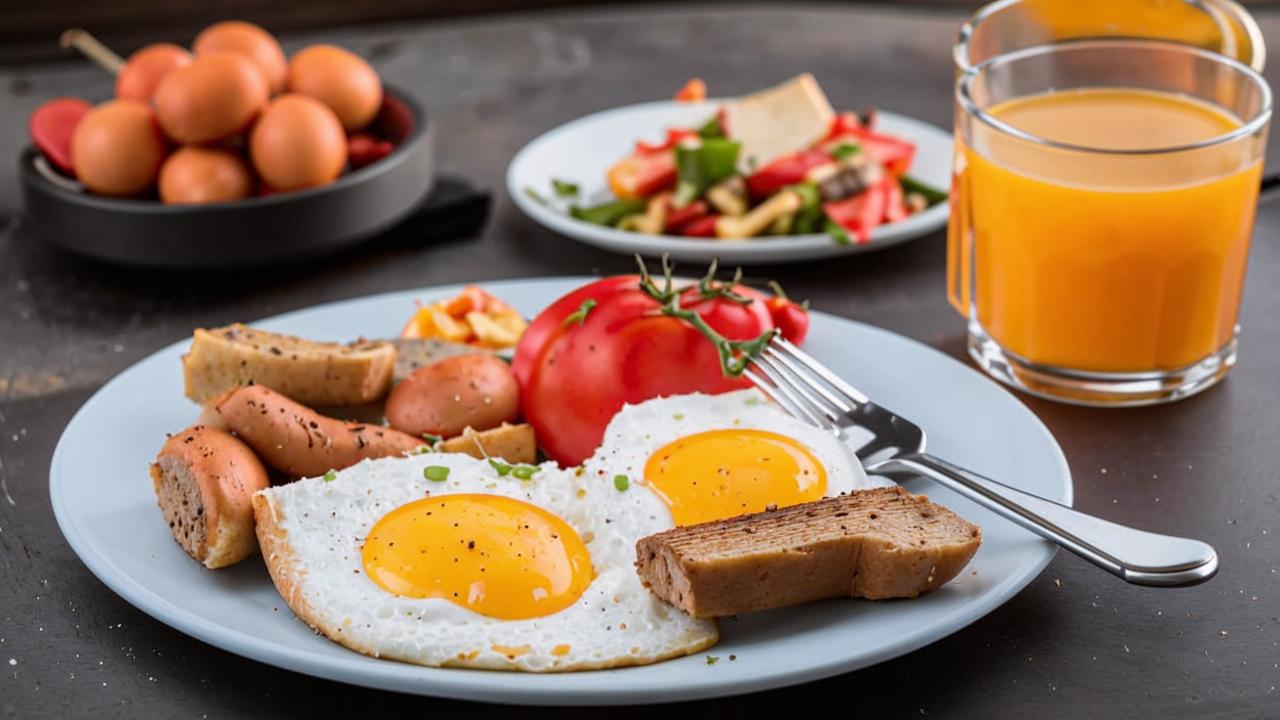There are many recipes for healthy breakfasts, from complex sandwiches and trendy smoothie bowls to oatmeal on water. No less than experts have long argued about what is healthier to eat in the morning. And such attention to the first meal is justified – it gives energy for the whole day. Now many nutrition experts are of the same opinion and make changes in the culture of breakfast. We tell you what elements the body needs in the morning hours.
Carbohydrates or proteins?
Since childhood, we have been told that we must eat porridge for breakfast, otherwise “there will be no strength”. Nutriciologist Alyona Vozhakova explains that this is a big misconception.
When you eat fast carbohydrates in the morning (sweet porridge made of white cereals, muesli, pastries, etc.), the blood sugar level rises quickly, and you really feel alert. But at exactly the same rate, the opposite reaction occurs, and you feel even more tired and hungry. These insulin spikes lead to weight gain and diabetes.
If your breakfast consists of proteins, fats and slow carbohydrates, your blood sugar levels gradually rise within the normal range and slowly drop. You remain productive for a long time. And the repeated feeling of hunger occurs already at lunchtime, which is physiological and correct.
The purpose of breakfast is satiety
In the early 1950s in England, a breakfast consisting of scrambled eggs, bacon and beans became very popular among the working class. It was the proteins and fats that gave workers the necessary energy boost and a long feeling of satiety. This is supported by modern research as well.
The journal Nutrients in 2017 published a scientific article that studied the difference between eating eggs and oatmeal for breakfast. At the end of the experiment, it was found that participants who ate eggs every morning felt satiety longer than those who ate oatmeal. It was also found that eating protein for breakfast reduced the amount of ghrelin in the blood.
Ghrelin is a hormone that stimulates hunger and often makes you want to eat something unnecessary. When its levels stay low, you lose weight faster and it’s easier to maintain your weight.
And another study found that endurance athletes who follow a low-carb, high-fat diet have improved endurance.

What foods should you pay attention to?
First of all, don’t be intimidated by fats. They are essential for the normal functioning of the nervous and endocrine systems, affect the quality of skin, nails and hair and contain fat-soluble vitamins.
Include avocados, 2-9% cottage cheese, olives, fatty fish, nuts and seeds, olive oil or flaxseed oil in your breakfast.
Second, pay attention to foods high in protein. Among them are eggs, various types of meat and seafood. For vegetarians, there are vegetable alternatives: tofu, chickpeas, red and black beans, peas.

If you are used to eating porridge for breakfast, then give preference to buckwheat. This cereal will be much healthier than processed oatmeal, and it contains much less carbohydrates. Also try quinoa, wild rice and lentils – among cereals they are leaders in protein content.
Fiber is just as important: it helps your body break down proteins and digest them. Add some vegetables and greens to scrambled eggs or whole-grain toast with avocado or fish.
The main thing – do not forget that such breakfasts will be useful only if you have a balanced diet, so observe your IBGU norm.





